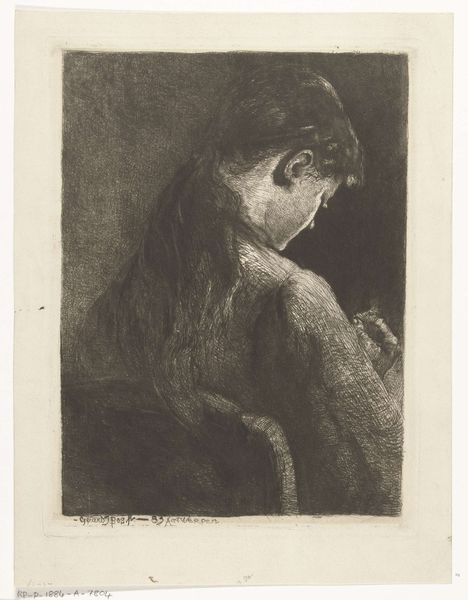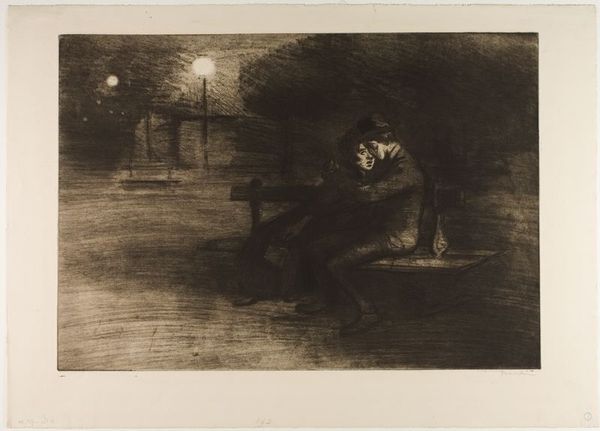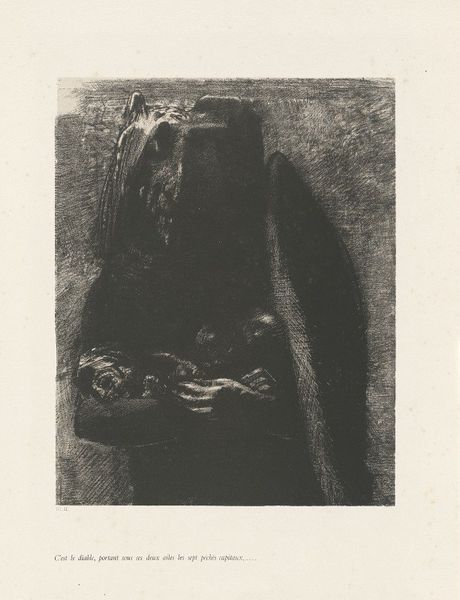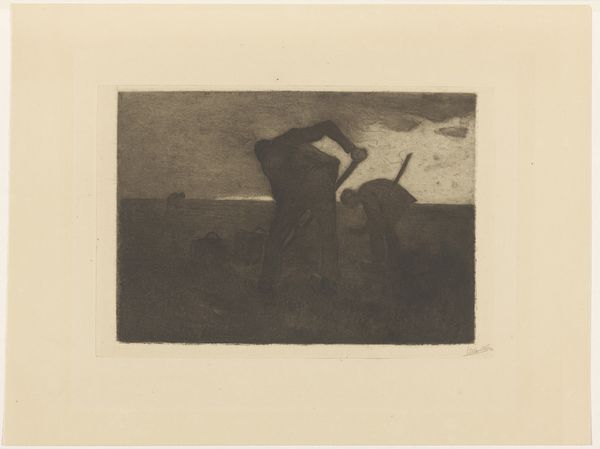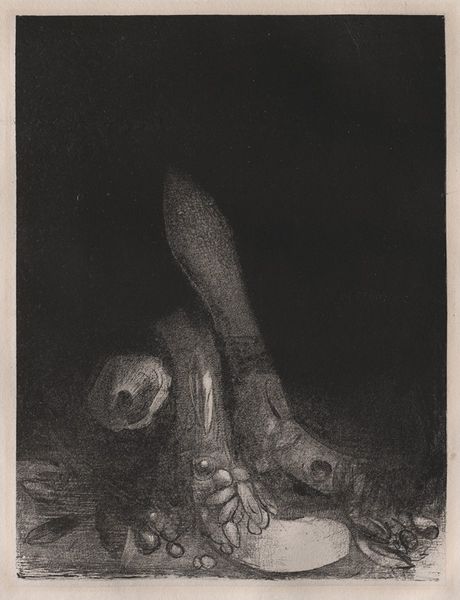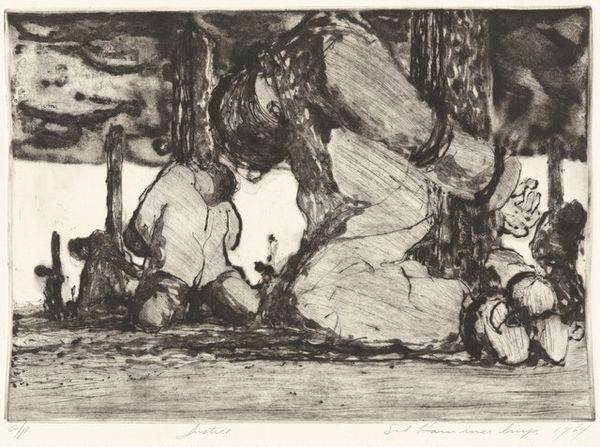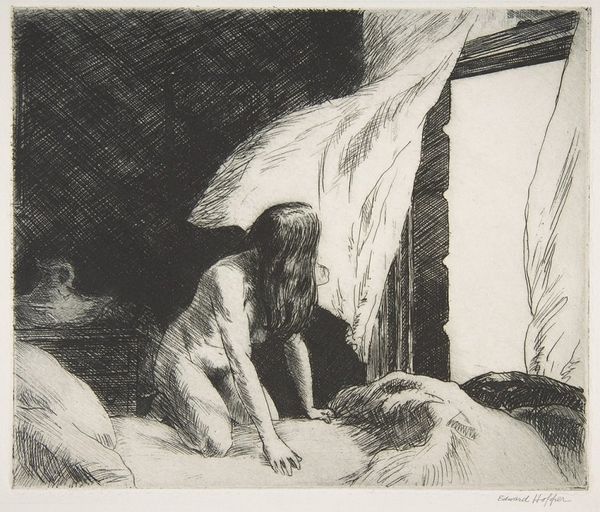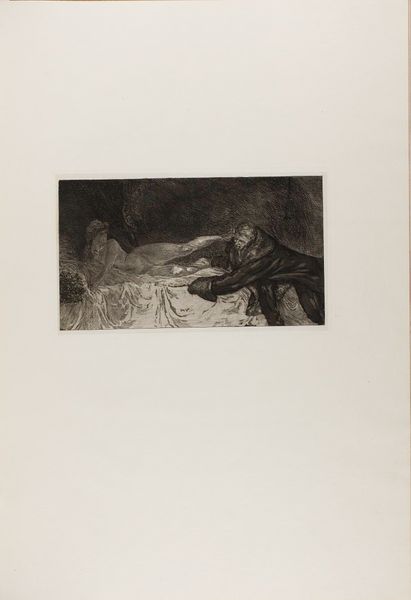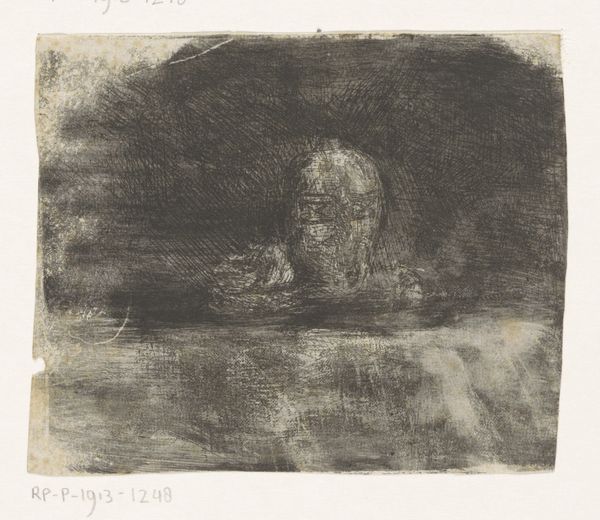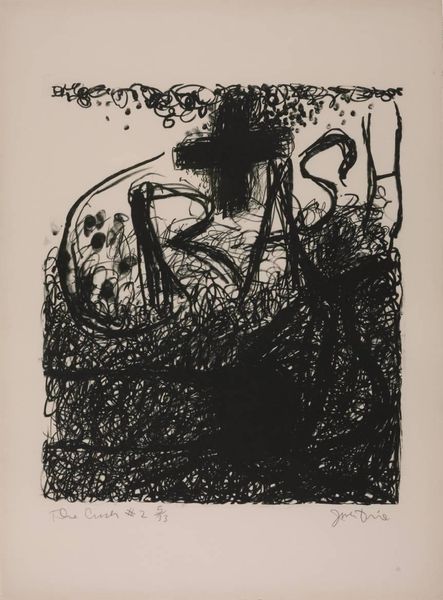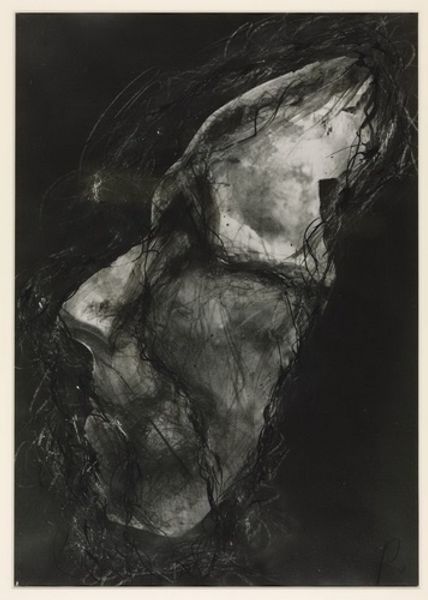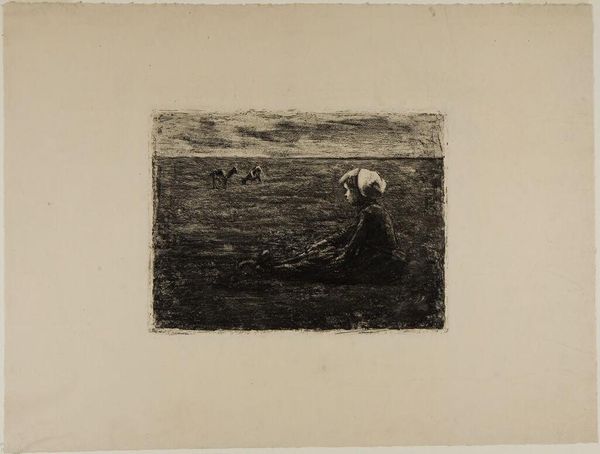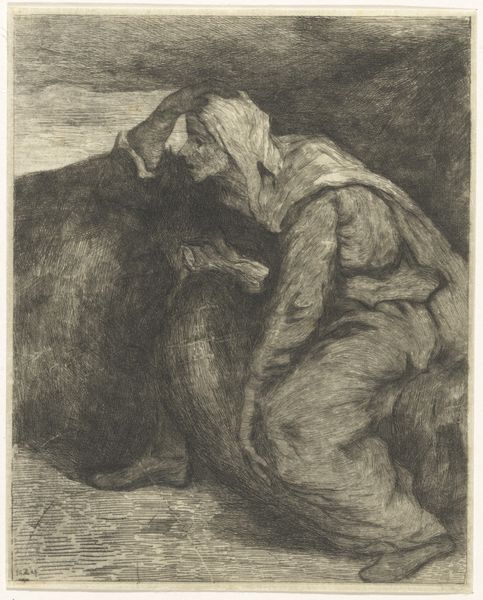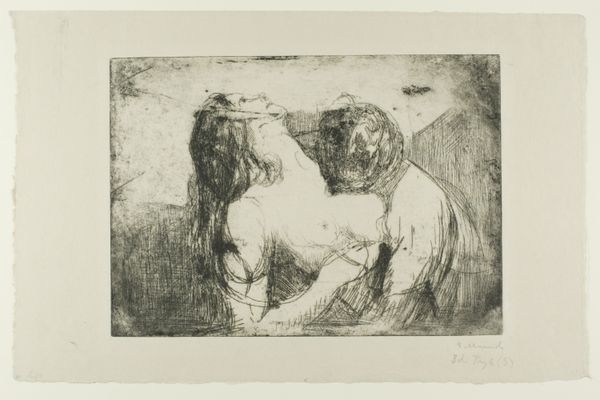
print, charcoal
#
narrative-art
# print
#
landscape
#
german-expressionism
#
charcoal drawing
#
figuration
#
expressionism
#
charcoal
#
history-painting
Dimensions: 16 1/4 x 20 7/8 in. (41.28 x 53.02 cm) (plate)20 1/8 x 25 5/8 in. (51.12 x 65.09 cm) (sheet)
Copyright: No Copyright - United States
Curator: What a grim scene. It practically sucks the air from the room. Editor: Indeed. We’re looking at Käthe Kollwitz’s "The Battlefield," possibly created between 1907 and 1921. It's currently housed here at the Minneapolis Institute of Art. The medium is charcoal, a choice that seems intensely fitting. Curator: Fitting, yes, like smudged memories trying to surface. All those figures sprawled out in the mud and gloom. Do you feel like you are peering into some nightmare? Editor: The dramatic chiaroscuro definitely amplifies the emotional intensity. The extreme contrast—almost absence—of light sculpts the scene into something brutally raw. Notice how the composition itself echoes a fallen body, splayed across the horizontal plane. Curator: It's hard to look away from that one central face catching what little light there is. Makes you wonder about his story, his family... all lost. And someone there looming...are they searching for him? Or…taking something from him? I get the chills either way. Editor: Precisely. And it's that very ambiguity which grants it such lasting power. Technically, consider the stark effectiveness of German Expressionism here, stripping away all artifice to confront the viewer with pure feeling. Curator: It gets right under your skin, doesn’t it? Like feeling the endless sorrow, and endless battles. Kollwitz, you beautiful tortured soul, thank you for pulling the invisible out into the light, even if that light feels…dimmed by grief. Editor: Agreed. The power of charcoal in Kollwitz’s rendering is indisputable. A compelling commentary through expressive, textural choices. Curator: Expressive doesn’t begin to cover it. Just...wow. Editor: Indeed. A potent testament.
Comments
minneapolisinstituteofart about 2 years ago
⋮
Käthe Kollwitz is acclaimed for her poignant scenes of human suffering, especially the tragic consequences of poverty and disease among women and children. A consummate draftsman, she relied on the graphic arts-in the form of prints, illustrations, and posters-as a powerful instrument of political allegiance to her left-leaning social agenda. She was anti-war, anti-violence, and a believer in the resilience of the human spirit. Kollwitz's dramatic night scene, part of her Peasant War print cycle, depicts a mother searching for her dead son among a field of corpses. In the soft light of the lantern, her weathered hand is illuminated as she touches the chin of a young man, perhaps her own child. Rather than portray the chaos and brutality of battle, Kollwitz shows us the agonizing aftermath of the fighting when the bodies of the dead were claimed by their loved ones. Though the scene alludes to the atrocities of a 16th-century workers revolt, it stands as a universal statement of a mother's love for her son, made more heartbreaking in that it foreshadows the death of Kollwitz's own son, Peter, who was killed in battle shortly after the start of the First World War (1914-1918).
Join the conversation
Join millions of artists and users on Artera today and experience the ultimate creative platform.
